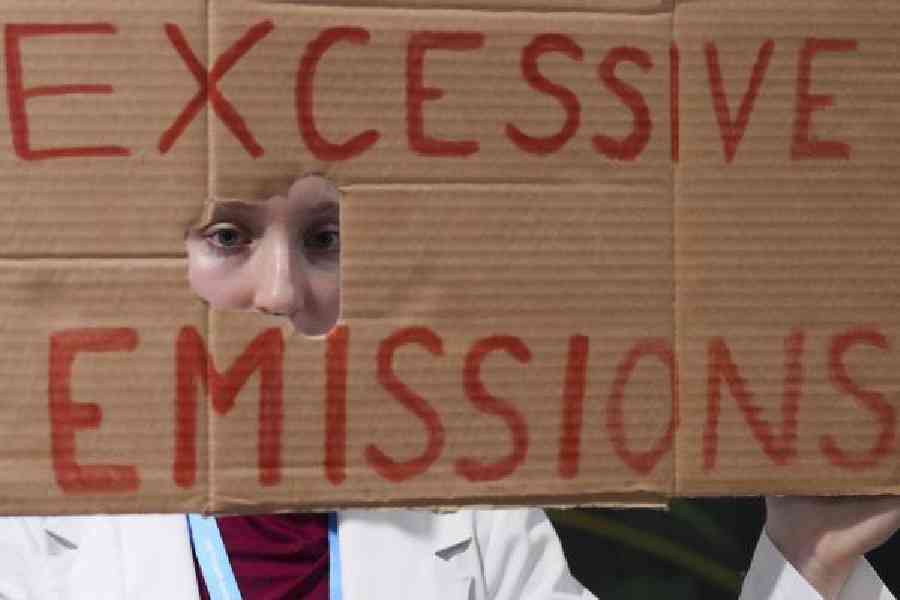The UN-mandated Glasgow climate pact, which announced that developed countries need to double the adaptation funds flowing to developing and less developed nations in 2025 compared to 2019, is all set to miss its deadline, informed a senior UN official on the sidelines of the COP29 in Baku.
Adaptation finance is critical for the climate-vulnerable countries in Asia and Africa, particularly India.
In 2019, the adaptation fund value was $19 billion and hence the target for 2025 is $38 billion, but it could only manage $28 billion by 2022, till which the calculations were made as reported in the Adaptation Gap Report 2024.
“Though the target has not been modified officially, it is likely that the 2025 deadline will be missed considering the slowness of the fund flow,” said Mikko Ollikainen, the head of Adaptation Fund, to this correspondent on the sidelines of the COP negotiation in an exclusive interview.
The official stated that though the target has not changed officially, he accepted that “2030 probably” maybe the new target year. The president of COP29 (UN Framework Convention on Climate Change), on Monday urged G20 countries to be more proactive on climate finance.
However, the draft negotiation text, released on Monday afternoon despite being far curtailed in length compared to earlier versions, is still ambiguous on financial targets of “new, collective, quantifiable goal”, including adaptation target.
The Adaptation Gap Report 2024 says that though the international public adaptation finance flows to developing countries increased from $22 billion in 2021 to $28 billion in 2022 which has been the largest absolute and relative year-on-year increase since the Paris Agreement, it is still way short of the $38 billion target to be achieved within a year. The situation even during COP is hardly hopeful.
While the world is talking in terms of trillions of US dollar climate finance required annually to combat the ever-increasing impacts of climate change, the global adaptation fund board official has confirmed to this correspondent that it has only received a commitment of $61 million, compared to its targeted amount of $300 million from this COP.
“So far we have received a commitment of $61 million during this COP, about one-sixth of our target of $300 million, and we expect that more countries will come up with fund commitments next week,” said Ollikainen last Saturday. The Adaptation Fund Board estimates that $300 million is on the lower side, considering the needs of vulnerable populations.
The Adaptation Gap Report 2024 of the UN Environment Programme said the adaptation finance gap is between “$187-359 billion per year”. The adaptation fund is the body that finances projects for vulnerable communities in developing countries to adapt to climate change.
The bigger picture in adaptation finance that transgresses annual COP commitments, is hardly rosier. “According to estimates, we could only receive 10 per cent of the target that was mentioned in the Adaptation Gap Report 2024,” admitted Ollikainen. “We are facing serious challenges in generating adaptation finances. Doing whatever we can from several sources but still running far short,” admitted the board head.
The report, “Come hell and high water”, released in early November, finds that nations must increase climate adaptation efforts, starting with a commitment to act on finance but the call has few takers from developed countries.
“That we only have $61 million instead of the $300 million target for the adaptation fund is a joke and a cruel one. Developed nations’ tendency to forget their commitments has increased mistrust among developing nations, casting a shadow over the Baku COP29 climate talks on the new climate finance goal,” pointed out Sanjay Vashist, the director of the civil society platform Climate Action Network South Asia in Baku.
Nilanjan Ghosh, an ecological economist, said that the market mantra of profiteering, as expressed by the return on investment, is the biggest obstacle for adaptation finance as the long gestation periods and imperceptible short-term economic returns do not make adaptation financing seem worthwhile for business as usual investors.
“We need to remember that the adaptation financing needs are more for the global south. Net-zero target years are 25-45 years away from today but by that time, the low-lying areas will be under sea, agriculture will be destroyed, urban settlements obliterated, and water crisis and food riots will be the order of the day,” said Ghosh, the director of thinktank Observer Research Foundation (ORF), Kolkata.











